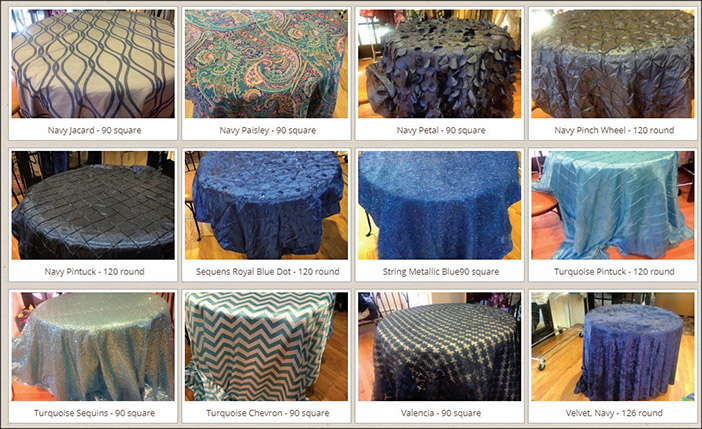

Though Earth Day may be in our rearview mirror, a sense of awareness of our natural resources should never be far from our minds. Making a simcha is no exception to our need to think of ways to cut back on waste. Now, we would never expect anyone to do away with disposable tableware. Nearly every family has their mini Amazing Savings stash somewhere in their house with enough cups, plates and napkins to feed, well, a large sheva brachot. But without requesting the readers of The Jewish Link to forego this necessity of entertaining, The Simcha Link would like to present a few suggestions of how to minimize waste when entertaining.
Paper goods have come a long way since Dixie started selling light floral patterns decades ago. Now paper and plastic plates can be used and still look elegant at an event. As was mentioned before, hosting an event and then having to wash dozens of dishes is still an unnecessary burden. But let’s think about the backdrop these gorgeous plates go on: the tablecloth. Plastic tablecloths are definitely easy. They can just wrap up all the garbage in one swoop. At the same time, using real tablecloths really adds an elegant flair to an event, with the added benefit of not creating extra garbage. The Project Yechi Tablecloth Gemach has an extensive selection of breathtaking cloths for every color scheme imaginable.
Another option for tablecloths is purchasing solid colors, which can be surprisingly affordable and used over and over. Many of the tablecloths that resemble the type caterers use can be found on efavormart.com for less than $10. These are the types of pieces that can be used for any type of gathering, whether it’s a sheva brachot, kiddush, seudah shelishit or even just a Shabbat meal. They are machine washable, go in the dryer and get folded and put away until the next event requiring a splash of color on the table.
If extra lighting is required—either indoor or outdoor—remember that LED and CFL options exist in most types of fixtures. These low-output bulbs drastically reduce energy consumption but still light up the event.
When shopping for the event, consider bringing reusable bags. Though New Jersey does not have a plastic bag ban (yet), there is no shortage of places to find these practical and often kitschy accessories. Project Ezrah even gives them away for free with their Purim deliveries. Shoppers can find these bags at Shoprite, Trader Joes, Target or even less likely stores such as Amazing Savings, Christmas Tree Shops and HomeGoods/Marshalls. Anyone who attends trade or vendor fairs can score a wide variety of branded canvas bags, or even get them for free during store promotions. If you have to purchase them, they are not going to break the bank. They typically run between 99 cents and $1.99, but are much stronger than even a double bag, which makes lugging all those heavy soda bottles for the simcha much simpler.
Speaking of soda bottles, don’t forget to recycle them after the simcha. When setting out a garbage for regular refuse, try to have a separate bag or other receptacle for the seltzer bottles, soda bottles, soda cans and water bottles that can pile up faster than used napkins. Many towns are adding to the list of what is accepted recycling material, so be sure to reference the town guideline, and look for the numbers on the bottom of plastic containers. For instance, many plastic takeout containers, as well as the plastics that strawberries, blueberries and other similar fruits come in, are now a “1,” which has become recyclable in many areas.
Don’t let yourself go crazy with this, because, after all, so much is happening at a simcha of any size. But remember that even making one small change can have significant and lasting impacts on the environment over time.
By Jenny Gans








